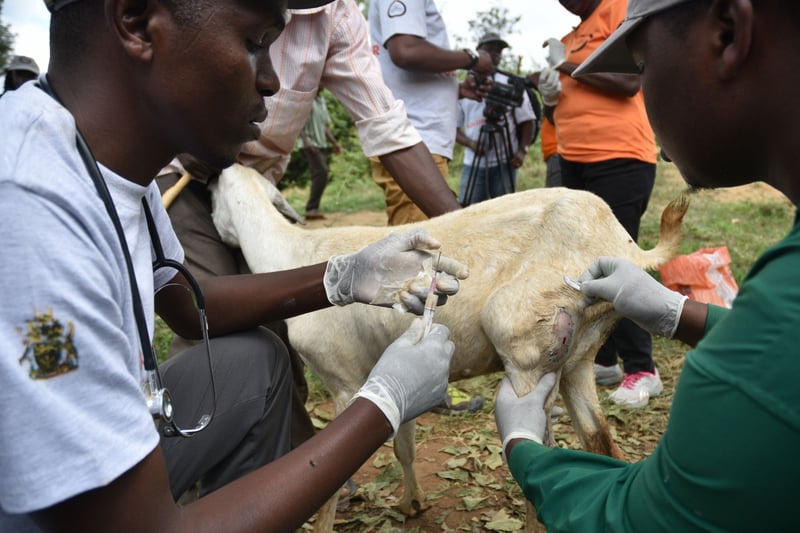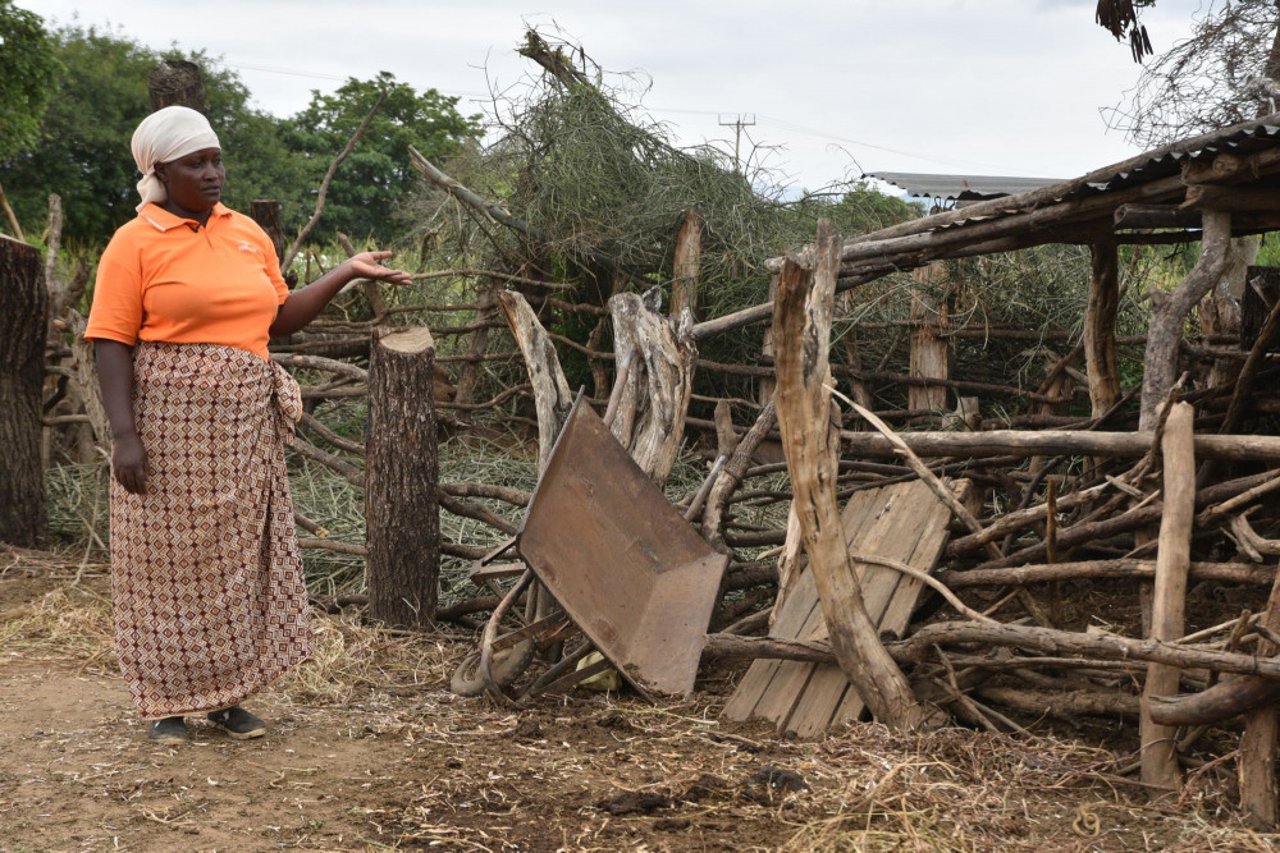
My animals would have survived if I was prepared
News
When we visited Agnes Mutunga’s home, 45 years old, it was evident that the recent rains had not been kind to her home. Her goats and sheep shed had been brought down by what is now described as the worst floods in the last five years.
Like most community members in her area, she didn’t see this one coming. She however expected a long dry spell, a phenomenon common to Makueni county. Agnes has eight cows, six sheep and twenty goats which are her main source of income. The money she earns from selling them, pays school fees for her four teenage children.
In April when the heavy rains were at their peak, Agnes lost four goats. The goats were killed when their shed was destroyed by the heavy rains. This happened exactly two weeks ago.
With the goat shelter destroyed, they were rained on for 10 days. The goats contracted pneumonia and shivers. With the help of her brother, she quickly moved them to an empty mud-house adjacent to her main house that she once hoped to convert to a store. It has an earthen floor and a small window for ventilation. The space is crammed and her goats can barely fit in it. This cramed space further spread of pneumonia from one goat to another.
A few days later, she noticed that her four goats, Katili, Musila, Ngeoni and Mutiso were not acting normal. Their appetites had deteriorated, and they were sneezing while oozing mucus from their noses. They didn’t want to interact with the other goats.
Agnes's pain of loosing her livestock
“I thought this was a condition like any other and would subside within a few days. This was however not the case as they died within two weeks. Veterinary services are unavailable here so I could not take them for treatment. It was sad to see my goats die in so much pain.” She narrates.
Agnes’s story reflects what has been ongoing in Kikumini village within the last two months. The hot semi -arid area that is mostly dry throughout the year had a different story to tell this time. It’s 18000 inhabitants are agro- pastoralists whose main source of income is selling livestock, especially during the dry season when income from crops is none existent.
The farmers had been prepared for droughts more than floods disasters. They therefore had a challenge in addressing flood preparedness and handling the animal welfare issues arising from floods. This has contributed to the major loss this year.
Most people did not know what to do when their animals got sick and those who wished to treat them could barely afford veterinary treatment. The daily wage of each household is USD 2 on average, money that can barely sustain most homes. The flood response was therefore very timely and greatly appreciated.
Hope for Kikumini village animals
While there was a lot to be sad about, Kikumini residents looked upbeat during the vaccination and treatment exercise. It was an opportunity for them to learn how they can protect their animals when a disaster occurs. In addition, the animals could now receive medication that is not affordable on a normal basis.
“I am really glad that World Animal Protection is educating us today on how to take care of our animals in times of floods. I have learnt a great deal. Moreover, I now know what some symptoms indicate in an animal,” she adds.
“I am also happy that today my remaining animals will get treatment and vaccination against worms and other flood related diseases. I thank World Animal Protection for this help. I now know my animals will survive this post- flood effects.”.
The disaster response exercise targeted 200,000 animals in Makueni county affected by the longstanding floods. Treatment was administered by the Veterinary Emergency Response Unit, a group of final year veterinary medicine students trained on disaster response. Flood preparedness messages in the local language was also broadcasted over the local FM radio
In collaboration with The University of Nairobi, we have developed a fully-fledged degree programme on Disaster Management and Animal Welfare. This has been approved by the University senate and is expected to be a complete faculty in a few years’ time.

